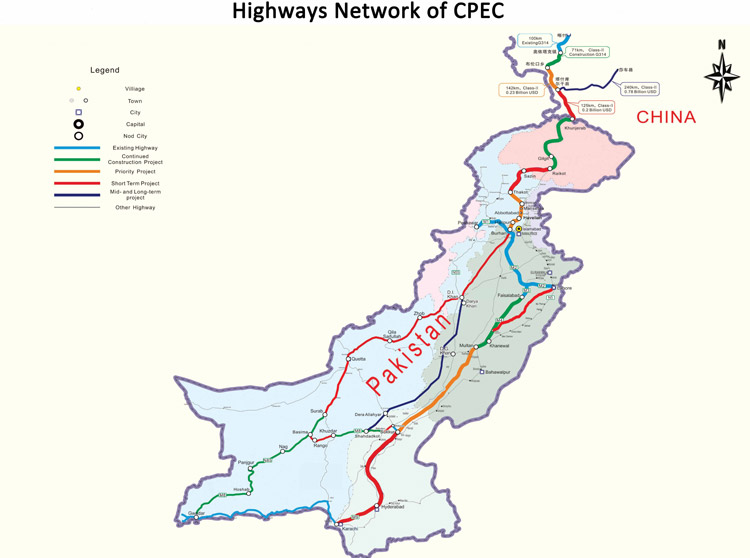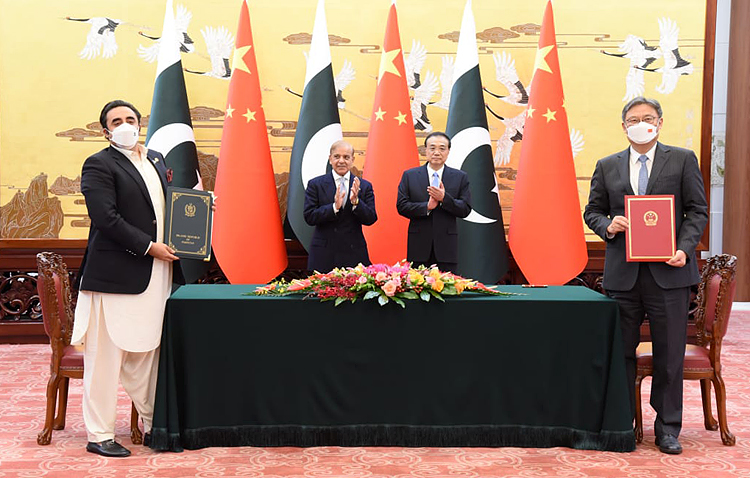INDIAN ARMED FORCES CHIEFS ON OUR RELENTLESS AND FOCUSED PUBLISHING EFFORTS

The insightful articles, inspiring narrations and analytical perspectives presented by the Editorial Team, establish an alluring connect with the reader. My compliments and best wishes to SP Guide Publications.

"Over the past 60 years, the growth of SP Guide Publications has mirrored the rising stature of Indian Navy. Its well-researched and informative magazines on Defence and Aerospace sector have served to shape an educated opinion of our military personnel, policy makers and the public alike. I wish SP's Publication team continued success, fair winds and following seas in all future endeavour!"

Since, its inception in 1964, SP Guide Publications has consistently demonstrated commitment to high-quality journalism in the aerospace and defence sectors, earning a well-deserved reputation as Asia's largest media house in this domain. I wish SP Guide Publications continued success in its pursuit of excellence.
- MoD initiates comprehensive review of Defence Acquisition Procedure 2020, pushes for defence reforms
- G7: The Swansong
- Kalinga Connect: South Asia to Polynesia
- Advanced MRSAM for India for a greater firepower
- Must Credit DRDO for Operation Sindoor, now what is next for defence R&D?
- Operation Sindoor | Day 2 DGMOs Briefing
- Operation Sindoor: Resolute yet Restrained
CPEC extension into Afghanistan
Beijing has Pakistan in its pocket and good relations with the Afghan Taliban to whom it has promised help to rebuild Afghanistan. However, Chinese workers remain under threat in Pakistan, so what will happen in Afghanistan when the CPEC is extended to that country.
 |
The Author is Former Director General of Information Systems and A Special Forces Veteran, Indian Army |

China and Pakistan have taken the decision to extend the China-Pakistan Economic Corridor (CPEC) into Afghanistan. According to Pakistan Prime Minister's Office (PMO), Chinese President Xi Jinping and Premier Li Keqiang made the commitment to extend the CPEC into Afghanistan to Shehbaz Sharif at the People's Great Hall in Beijing during his recent visit to China.
A statement released by China’s Ministry of Defence reads, "The two sides underscored the need for the international community to provide continued assistance and support to Afghanistan, including through unfreezing of Afghanistan's overseas financial assets. The two sides agreed to continue their humanitarian and economic assistance for the Afghan people and enhance development cooperation in Afghanistan, including through CPEC's extension to Afghanistan."
It is well known that China launched the CPEC, part of which runs through the Indian Territory of Pakistan occupied Kashmir (POK), without reference to India. Also, India is opposed to extension of the CPEC into Afghanistan. When news about extension of the CPEC to Afghanistan first emerged in July 2022, India expressed concern about India’s sovereignty and territorial integrity.
When news about extension of the CPEC to Afghanistan first emerged in July 2022, India expressed concern about India’s sovereignty and territorial integrity.
The Ministry of External Affair (MEA) spokesperson Arindam Bagchi said, "We have seen reports on encouraging a proposed participation of third countries in so-called CPEC projects. Any such actions by any party directly infringe on India's sovereignty and territorial integrity. Such activities are inherently illegal, illegitimate and unacceptable, and will be treated accordingly by India".
The $60 billion CPEC investment in Pakistan is also China’s strategic highway to the Arabian Sea. It provides financial gains to Chinese companies and employment for Chinese nationals. In strategic terms, China has control of the Gwadar Port and access to entire Pakistan coastline. There would be around five million Chinese workers in Pakistan by 2025 according to a report published in ‘The News’ on September 22, 2021.
It is well known that Chinese companies working on overseas projects are owned or contracted by the Peoples’ Liberation Army (PLA). PLA personnel in civil attire are part of these projects, as are also personnel of China’s Special Forces when required. About a Brigade-strength of PLA personnel are also guarding the CPEC in Pakistan dressed up as civilians.
In recent months, Chinese nationals are being targeted in Pakistan. Some of the incidents are as under:
- On July 13, 2021, 10 Chinese nationals, mostly engineers, were killed and 26 others were seriously injured after a suicide attack on a bus that was ferrying them to the work site of the Dasu Hydropower Project in Kohistan district of Khyber Pakhtunkhwa (KPK) Province.
- In January 2022, the Economic Coordination Committee (ECC) of Pakistan’s Cabinet chaired by Finance Minister Shaukat Tarin decided to pay $11.6 million to 36 Chinese victims (killed and injured) in the attack on Dasu Hydropower Project in July 2021.
- A Chinese national was shot dead and two others injured on September 28, 2022, when an unidentified gunman opened fire inside a dental clinic in Karachi.
Following the attack on the Dasu Hydropower Project last year, media reported that Chinese nationals working in development projects would be permitted to carry personal arms like AK-47 assault rifles. However, continued targeting of Chinese nationals has annoyed the leadership in Beijing more. Shehbaz Sharif was conveyed these concerns strongly during his recent visit to China.
The ‘Express Tribune’ reported on November 6 that Pakistan and China have agreed to use bullet-proof vehicles for all outdoor movement of Chinese workers in Pakistan according to the Draft Minutes of the 11th Joint Cooperation Committee (JCC) of the CPEC exchanged between the two side. However, the 11th JCC minutes have not been signed by the two sides during the two-day China visit of Shehbaz Sharif.
The $60 billion CPEC investment in Pakistan is China’s strategic highway to the Arabian Sea. In strategic terms, China has control of the Gwadar Port and access to entire Pakistan coastline.
The Pakistani side requested Chinese support for full upgrade of the National Forensic Science Lab in Islamabad, which China agreed to. China has also committed to establish a training centre in Pakistan for the private security guards and the law enforcement agency (LEA) personnel and equipping them with the modern techniques and modules.
Pakistan says Minutes of the 11th JCC of the CPEC would be signed virtually. It remains to be seen how many bullet-proof vehicles would procured for outdoor movement of Chinese workers in Pakistan, the bill for which Islamabad may have to foot since security is Pakistan’s responsibility and permission has not been granted (at least officially) for China to bring its own security set up in Pakistan. The separatists, especially Baloch independence organisations would already be aware of these developments and would plan to use heavier weaponry like rocket propelled grenades and explosives.

According to Pakistani media, the Tehrik-i-Taliban Pakistan (TTP) has claimed responsibility for carrying out 43 attacks in 18 districts of Pakistan. The TTP’s media wing claims that overall 113 security personnel including 60 Pakistani troops, 30 policemen, 19 FC, and 4 intelligence agencies personnel were killed and injured. The ‘Dawn’, citing the Pakistan Institute for Conflict and Security Studies (PICSS), says that September witnessed 42 militant attacks with an increase of 35 per cent compared to August. PICSS has also observed an increase of 106 per cent in violence in erstwhile FATA and Khyber Pakhtunkhwa.
It is well known that Chinese companies working on overseas projects are owned or contracted by the Peoples’ Liberation Army (PLA). PLA personnel in civil attire are part of these projects.
The US Special Representative for Afghanistan Thomas West has raised concerns about increasing attacks by TTP in Pakistan. However, on a question about US ties with the Afghan Taliban, West said, "I don't believe that there will be any practical partnership between the US and Taliban." The US has wound up its Embassy in Afghanistan but it is touch with the Afghan Taliban through the Embassy of Qatar.
China has traditionally followed the policy of ‘buying’ terrorist organisations and has itself been employing terrorism against India in conjunction with Pakistan. Beijing has Pakistan in its pocket and good relations with the Afghan Taliban to whom it has promised help to rebuild Afghanistan. But the question is Chinese workers remain under threat in Pakistan, what will happen in Afghanistan when the CPEC is extended to that country.
Segments of the Afghan Taliban and the TTP are angered over China’s treatment of Uighur and Muslims in Xinjiang. The US has been training Uighur separatists; some of who were inducted into the Badakshan region of northern Afghanistan along with ISIS cadres through Pakistan while US forces were in Afghanistan. The US has been using terrorists as proxy forces since decades and is now giving indications it is ready to take on China similar to fighting Russia in Ukraine. Can the US-NATO muster guts to confront China in the Af-Pak region using proxy forces to disrupt the CPEC and its extension since it provides greater opportunity to target Chinese nationals?





